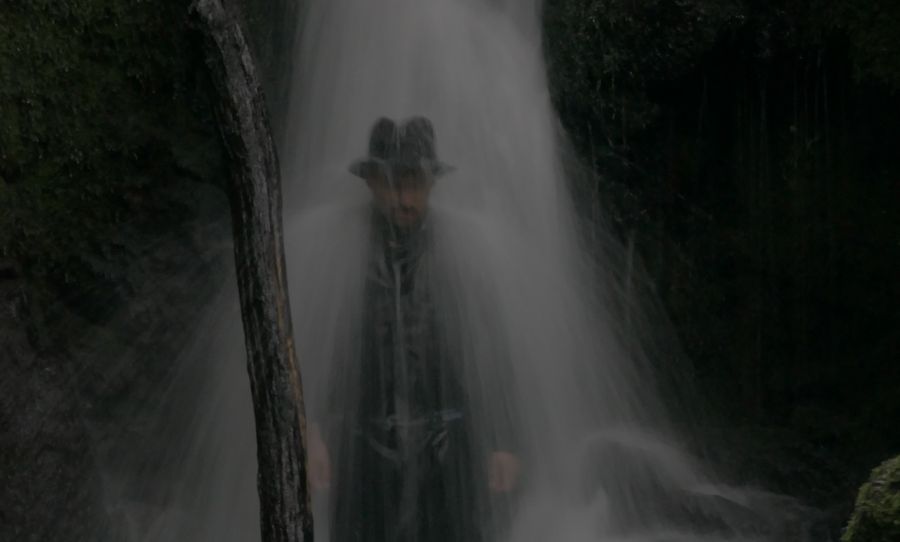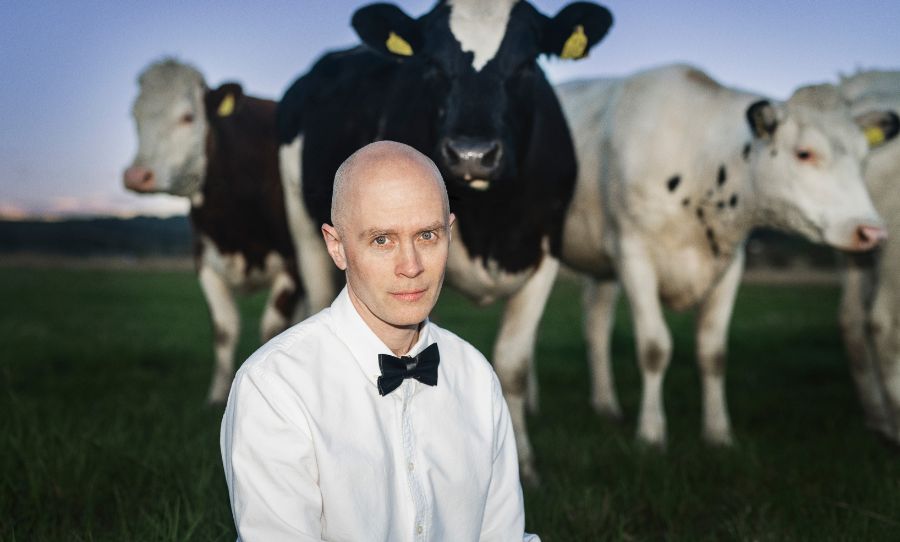Amidst shadowy visuals, Kid Lazuras’ debut album ‘Utopia’ weaves sonic tales of resilience and introspection.
In pictures attached to his debut album Utopia, Kid Lazuras is depicted as a shadowy forest-rambling figure who screams in rivers, laughs by waterfalls, and meditates while floating. Utopia’s twelve tracks mirror these contrasting moods, while offering unique opinions on questions of self-identity and status in our modern world.
As a native of Bristol, Kid Lazuras cites influence from the new-wave, electronic and post-punk scenes. Traces of older Bristol artists like Massive Attack, Portishead, and The Pop Group are also on display in his ironically-named musical world, which is borne of hardship but redeemed by acceptance.

The album opens and closes with two piano-led ballads, which are spiced up with female vocals backed by milky strains of organ, and echo the dark sonic tapestries of Nick Cave. Between Kid Lazuras’s ‘Fall For The Break’ and ‘Words Are Just Another Way To Hide’, we experience a deeply-human palette of emotions, including raucousness, anger, and playfulness.
Utopia’s debut single, ‘In Ether’, conjures up a menacing downtempo groove, reminiscent of Massive Attack. It pulses through thick layers of electronic drums, which are later enhanced and replaced by an acoustic drum-kit. This provides the bedrock for synth textures, cascading electric piano, and swelling synth bass.
While interplay between male and female vocals proves to be a motif in Utopia, ‘In Ether’s hypnotic voices are female. Operating similarly to a DJ, Kid Lazuras adds and strips away musical layers at a moment’s notice.
The album’s second single, ‘Men Of God’, is a loud chunk of heavy spy-funk, complete with sly guitar work and big drum fills. Similar to ‘In Ether’, its dynamics constantly ebb and flow, while its lyrics address the character of a two-faced religious figure. “He’s got the face of an angel but his mind reeks of hell”, Lazuras sings. “He terrorised that boy, he terrorised me”. Additional tracks delve into themes including refugees, capitalism, and the illusory nature of happiness.
While Utopia certainly isn’t blind to the ugliness of the world, it features enough artistic energy to redeem a belief in human vitality and strength.
Review By Corin Shearston



